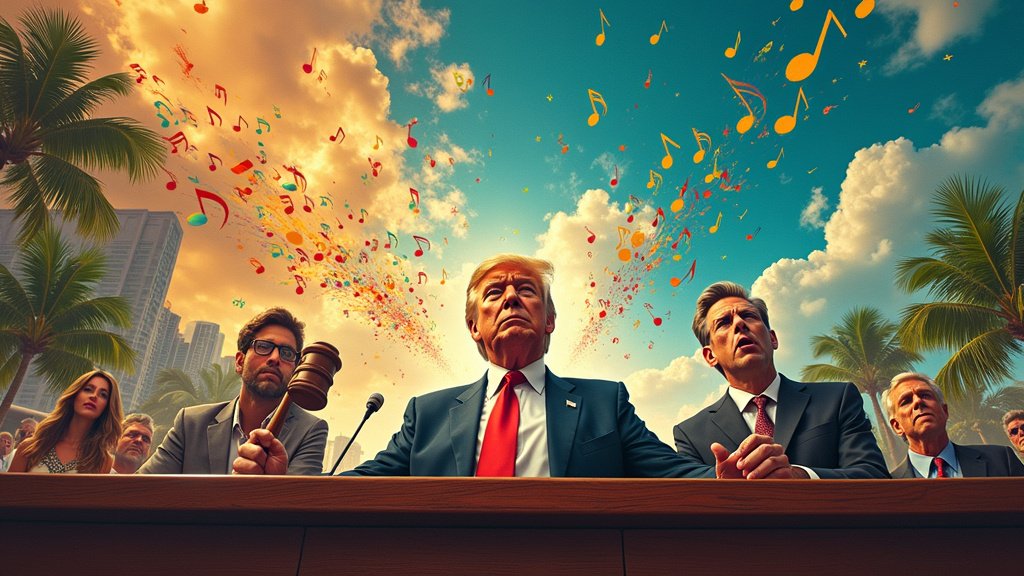Miami, Florida – A controversial measure enacted by the Miami City Commission to postpone the city’s scheduled 2025 municipal elections to 2026 has ignited a significant legal challenge and drawn sharp criticism from state officials. The ordinance, which received final approval from the commission in a decisive 3-2 vote on June 26th, effectively extends the terms of current officeholders by an additional year. This action has been met with immediate backlash, with critics arguing it is an unconstitutional overreach of power and an attempt to circumvent the established electoral cycle, culminating in a lawsuit filed just days after the commission’s vote.
The Commission’s Rationale and Vote
The vote taken on June 26th saw Commissioners Damian Pardo, Christine King, and Ralph Rosado vote in favor of the ordinance, while two commissioners opposed it. Commissioner Pardo, who sponsored the measure, articulated the primary motivations behind the proposed delay. Proponents argue that aligning Miami’s municipal elections with Florida’s statewide and national election cycle in even-numbered years is a strategic move designed to dramatically increase voter participation. Citing historical data, they noted that standalone Miami municipal elections typically suffer from significantly low turnout rates, often hovering between a mere 10% and 15% of registered voters. By contrast, statewide general elections regularly draw turnout exceeding 60%. The hope is that synchronizing the ballots will leverage the higher energy and engagement of major election years, thereby producing a more representative electorate for local contests. Beyond boosting democratic participation, supporters also emphasized the potential for substantial cost savings by sharing election administration expenses with county and state authorities, rather than bearing the full cost of a separate municipal election.
State Criticism and Constitutional Concerns
Despite the stated goals of improved turnout and efficiency, the ordinance has faced stringent opposition, particularly from state-level authorities who question its legality and constitutionality. Florida Attorney General James Uthmeier has been among the most vocal critics, publicly asserting that the city commission’s action is unconstitutional. The core of the constitutional challenge centers on whether a local legislative body, such as a city commission, possesses the authority to unilaterally modify the timing of elections in a manner that results in extending the terms of the very officials who enacted the change. Critics argue that such an action potentially violates state constitutional provisions and statutory laws governing the duration of elected terms and the process for altering election timelines. They contend that extending terms in this manner bypasses the will of the voters and potentially disrupts the established checks and balances of the electoral system.
Legal Challenge Filed
The opposition transitioned from public debate and criticism to formal legal action swiftly following the commission’s approval. On June 30th, a lawsuit challenging the validity of the ordinance was filed in Florida’s 11th Judicial Circuit Court. The plaintiff in the case is Emilio González, identified in court documents and public statements as a declared candidate for Miami mayor. The lawsuit specifically targets the June 26th ordinance, alleging that it is unlawful and should be invalidated. González and his legal team argue that the city commission exceeded its legal authority in passing the measure and that the extension of terms is an impermissible consequence of an illegally enacted law. The filing of the lawsuit introduces a formal legal battle that will require judicial review of the commission’s actions and the legal basis for the election delay.
Examining the Arguments and Principles
The debate surrounding the ordinance highlights a fundamental tension between pragmatic governance goals and core democratic principles. Proponents prioritize the potential for higher voter engagement and fiscal responsibility, framing the measure as a necessary reform to address persistent low turnout in local elections. They posit that a city whose leaders are elected by a larger percentage of its residents is inherently more democratically legitimate. Conversely, opponents emphasize the principle of regular, predictable elections and the potential for abuse of power when incumbents vote to extend their own terms. They argue that while increasing turnout is desirable, the method chosen – legislative extension of terms – is constitutionally suspect and sets a dangerous precedent. The legal challenge is expected to scrutinize the intent behind the ordinance, the scope of the city commission’s legislative powers, and the overriding principles of election law and constitutional governance in Florida.
Potential Implications
The outcome of the lawsuit in the 11th Judicial Circuit Court carries significant implications for Miami’s political landscape and potentially for other municipalities across Florida. If the court upholds the city’s ordinance, it could validate the ability of local governments to alter election schedules for reasons such as increasing turnout or achieving cost savings, even if it results in term extensions. This could set a precedent influencing election administration practices elsewhere. Conversely, should the court rule against the city, the ordinance would likely be struck down, forcing Miami to revert to its original 2025 election timeline. Such a ruling would reinforce limitations on the legislative authority of city commissions regarding election laws and the duration of elected terms. The case is not merely about the timing of an election; it touches upon fundamental questions of municipal autonomy, the interpretation of state election law, and the checks and balances designed to prevent elected officials from manipulating the rules governing their own tenure. As the legal process unfolds, residents, political hopefuls, and legal observers will be closely watching the proceedings, understanding that the court’s decision will shape the future of Miami’s electoral process and potentially establish important legal precedents in the realm of local governance and election law.





